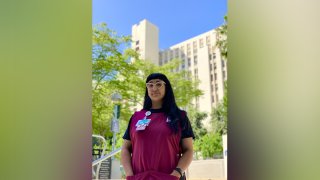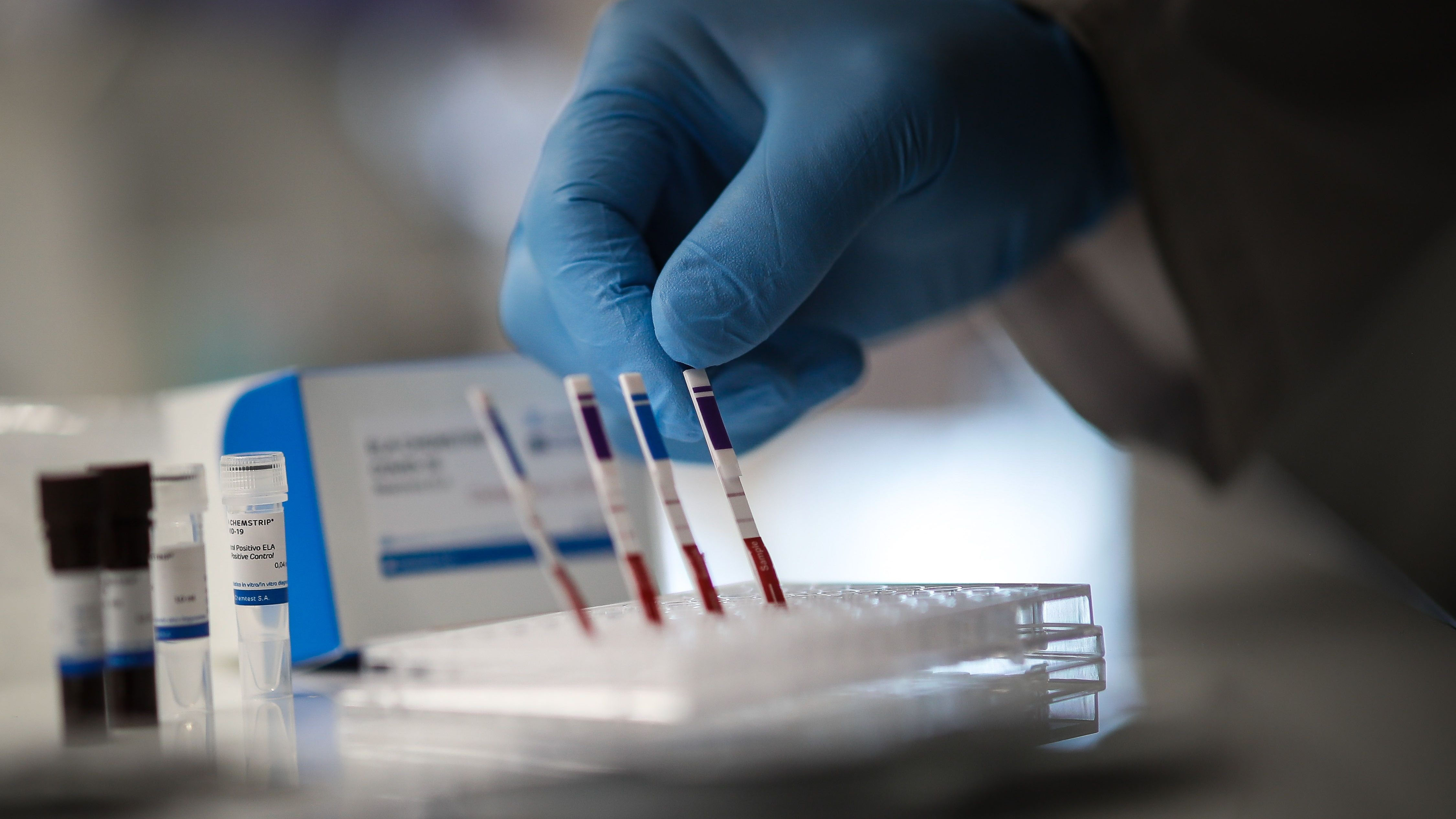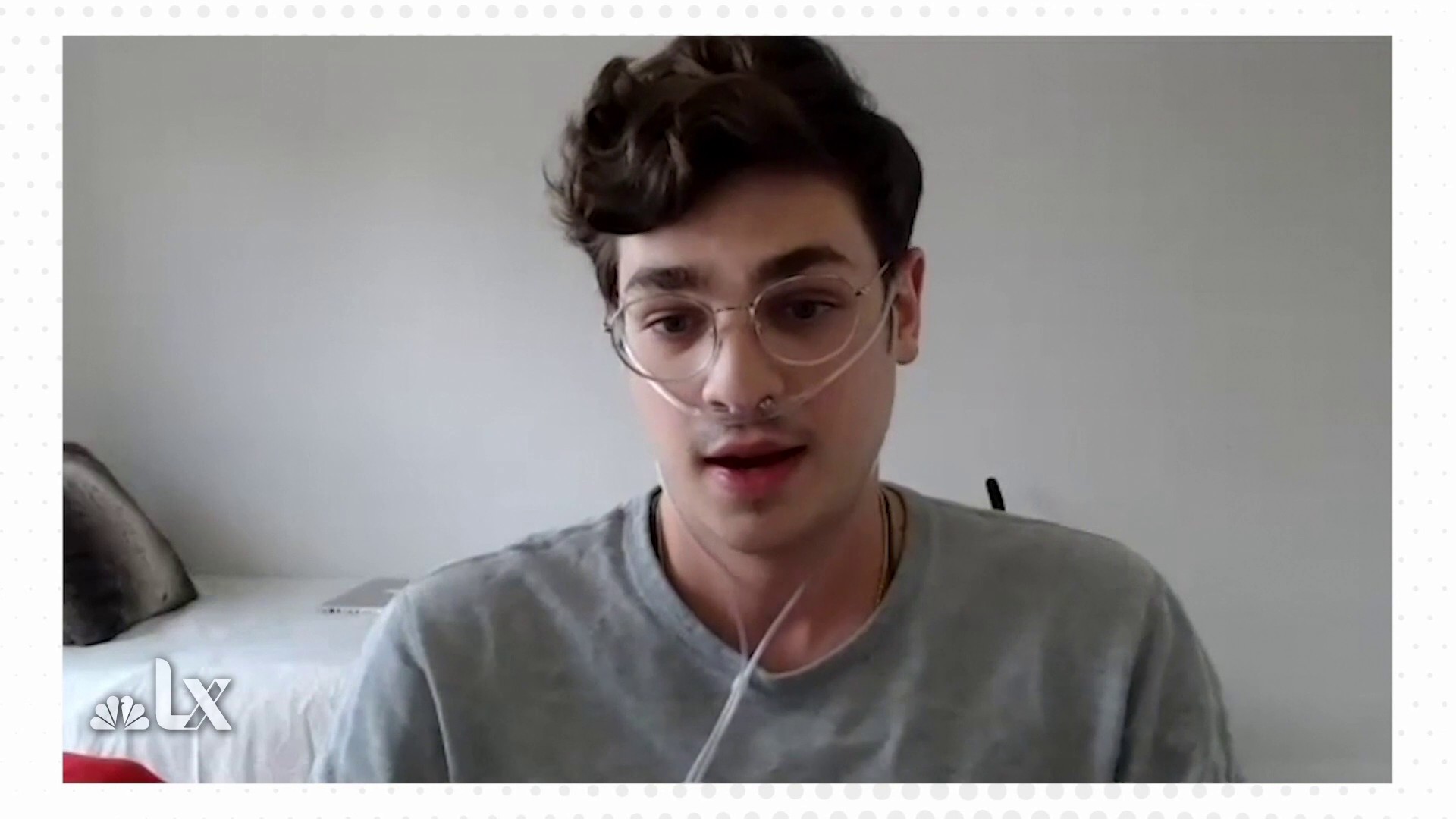
Working in the medical field is not an easy task, especially during a global pandemic.
COVID-19 has changed the lives of people all over the world.
Over 200,000 cases have been reported in LA County since the start of the pandemic and over 5,000 deaths.
Some are adjusting to the “new normal” wearing masks and gloves to run their daily errands, while others are risking their own lives to save those struggling to survive in a hospital.
Julie Muñoz is a 28-year-old LA County local who has found herself on the frontline during the coronavirus pandemic.
“It has been a very eye-opening experience,” Muñoz said about her work. “I have witnessed some of the most touching moments as well as the most heartbreaking. There have been many moments where I start reflecting and asking myself if this is real life.”
Muñoz works as an EMT for an Interfacility Transfer company while also volunteering at LA Couty+USC Medical Center in their Emergency Department.
On a typical work day, Muñoz finds herself transporting patients to the hospital and care centers, running basic life support calls and critical care transports as well as assisting with phones due to the surge in 911 emergency calls.
As far as her volunteer work with LAC+USC, Muñoz was usually working with patients who needed wheelchair assistance, patient carts, stocking supplies and helping visitors navigate through the hospital.
However, the pandemic has since changed her daily workflow.
Volunteers were now being asked to assist with the rebranding project of over 200,000 N95 masks, food distribution for the hospital staff, and cleaning high touch surface areas throughout the hospital, Muñoz explained.
Before picking up a patient, she must be fully equipped with an isolation gown, a surgical mask, an N95 mask, goggles, a face shield, and a surgical cap.
“I go into every shift knowing that I am going to be exposing myself and hoping I don’t bring it home,” Muñoz said.
One topic of concern that arose since the beginning of the pandemic was the lack of responsibility from the younger generation when it came to taking this pandemic seriously.
Reports of millennials booking cheap flights and hosting gatherings with friends in social settings can still be seen today, months after the nation has been battling to slow the spread of COVID-19.
It has come to the point where LA Mayor Eric Garcetti has had to authorize utility shutoffs to local party houses to prevent large gatherings during the pandemic.
But for millennials like Muñoz, who are seeing first hand the dangers of this deadly virus, they know it is not something to be taken lightly.
“...When I saw that people were actually trying to book flights and go about it as if it were the regular flu I was pretty shocked. I felt like our generation was a little more ‘woke’ and would actually see how detrimental this virus really was,” Muñoz said.
Although the mass closures of businesses and restaurants may have helped ease the crowds of people going out in public and flatten the curve, that didn’t guarantee that everyone was taking it seriously.
“I also think it's hard for people, in general, to care about something if it's not directly affecting them or their loved ones,” Muñoz said.
Muñoz said she would advise those in her generation “to really think about those around them. Right now is not a time to be selfish, we really need to think about how our actions affect those around us.”
Although this pandemic has changed the way we go about our daily life and truly tested those working in the medical field, Muñoz says this experience has solidified her passion for having a future in the medical field.
Muñoz finds that the hardest part of working in the medical field during the pandemic has been working with families of COVID-19 patients.
“I hate being the person to tell them they can't have physical contact with their loved one, or that they won't be able to visit them in the hospital. I know it's a trying time in their lives and they need reassurance that their loved one will be ok, but in order to contain the spread of the virus, we need to avoid those habits,” Muñoz said.
Although it can be a physically and emotionally taxing job, there is always some positive light for those passionate about helping their patients and their families.
“Being there for them in their time of need and comforting them in a moment of uncertainty is a humbling experience,” Muñoz said. “I know that not having their family with them is a stressful experience and if there is a way that I can help ease their mind, then I feel I have done my part. We can't give false hope but we can let them know that they are not alone.”
Moving forward, Muñoz plans to continue her education to grow her knowledge and experience in the medical field.
“Working as an EMT really gives you the opportunity to network and grow within the field of medicine. Volunteering at LAC+USC has presented me with a plethora of opportunities to learn, network, and give shadowing experience at such an iconic hospital,” Muñoz said.



